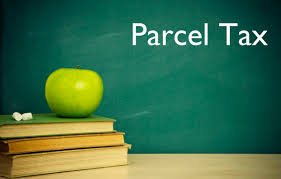Important California Property Tax Exemptions for Seniors
We all know that California is a beautiful place to live but taxes are high and property taxes can be a challenge to some residents, especially seniors.
Fortunately, the state offers a variety of property tax exemptions for individuals 55 and older.

The problem is complicated because many homeowners are not aware of property exemption rules in their area. Each county in California can levy its own special taxes and assessments so that it is easy for many homeowners to get confused and even easier to miss out on tax breaks on their property taxes.
If you are a senior or are caring for one who is incapable of filing their own taxes, for whatever reason, you will want to know which deductions and credits might save you thousands in taxes.
Here are some of the most common property tax exemptions for seniors and how to determine whether you’re eligible for them.
California Propositions 60 and 90
Propositions 60 and 90 are laws that allow homeowners 55, or older, to move into a new home without substantially increasing their property tax obligation.
How?
Because of Proposition 13, your home’s appraised value is determined at the time you buy it and raises to that value are limited to a maximum of 2% through that same proposition. Through Propositions 60 and 90, you can transfer that same valued tax obligation so long as your new property is of equal or lesser value than the original property sold.
Here is an example
If you bought a home 10 years ago for $300,000 its current assessed value is about $365,698 now. If we assume your tax rate is around 1.25% you are paying $4,571 in taxes yearly. If you sell that home for $700,000 and move into a new place valued at, say, $650,000, you would still only pay the tax obligation for a $365,698 house (and 2% more each year).
If Propositions 60 and 90 were not in force, you would be paying $8,125 each year in taxes instead of $4,571. This allows seniors to move and be much cheaper and more feasible, especially for those who are on fixed income, such as Social Security or income off an investment portfolio.
What is the difference between Prop 60 and Prop 90?
Proposition 60 allows you to transfer the property value and the associated tax burden only within the same county. Proposition 90 allows you to do this in different counties, but only if those counties have opted into the program.
Counties where Proposition 90 is available (as of this writing):
Alameda, El Dorado, Los Angeles, Orange, Riverside, San Bernardino, San Diego, San Mateo, Santa Clara, Tuolumne, and Ventura. The county of El Dorado will stop taking property tax transfers through Proposition 90 on December 12th, 2018.
How do I file?
After you’ve finalized the sale of your old home and the purchase of your new one, fill out the claim form BOE-60-AH, Claim of Person(s) at Least 55 Years of Age for Transfer of Base Year Value to Replacement Dwelling, which you can obtain from your local County Assessor’s office. Here is more information from the LA County Assessor’s office.
Limitation
An individual may only use Proposition 60 or 90 once in a lifetime, unless the individual claims disability as the reason for the relocation. An individual may not use Proposition 60 or 90 a second time if disability was cited for the first use and may never be used a third time.
Parcel tax exemptions
It is not uncommon for California counties to levy parcel taxes on homeowners to pay for public services such as education and public utilities. To gain support for these taxes, counties usually allow homeowners 65 or older to file for exemptions.

The exemptions, and the procedure for filing for them, vary by county. Some require homeowners to file for the exemptions every year while others automatically apply the exemptions after the first filing. Check with your county to be sure.
How do I file?
The forms are here and there is more information here.
Check with your local tax collector’s office to find out how to apply for exemptions in your area.
Disabled Veterans
The State of California offers a tax exemption for veterans who were disabled through military service. According to the California Board of Equalization, the basic exemption for disabled veterans starts at $100,000, while low-income disabled veterans can qualify for an exemption of around $150,000 (this changes yearly according to the cost-of-living index).

For example, if the taxable value of your home is $300,000, the exemption will reduce the taxable value to around $200,000, or more, if you qualify for low-income status. This could save you hundreds of dollars in taxes over the course of a year.
How to qualify:
The person filing must meet one of the following criteria:
• Blind in both eyes
• Lost the use of two or more limbs
• Is totally disabled according to the United States Department of Veteran Affairs.
If the individual owner is deceased due to service-related injuries, the exemption is then available to the unmarried surviving spouse, even if the veteran wasn’t eligible while he/she was alive.
Fine print
The homeowner can only apply one exemption to the property. If you have the option between the homeowner’s exemption or the disabled veteran exemption, you will want to choose the later because your benefit will be greater.
Note: The information in this article was taken from sources deemed reliable and should not be used as a final source for information. We recommend you consult with a lawyer or tax accountant to determine what is right and legal for you.




